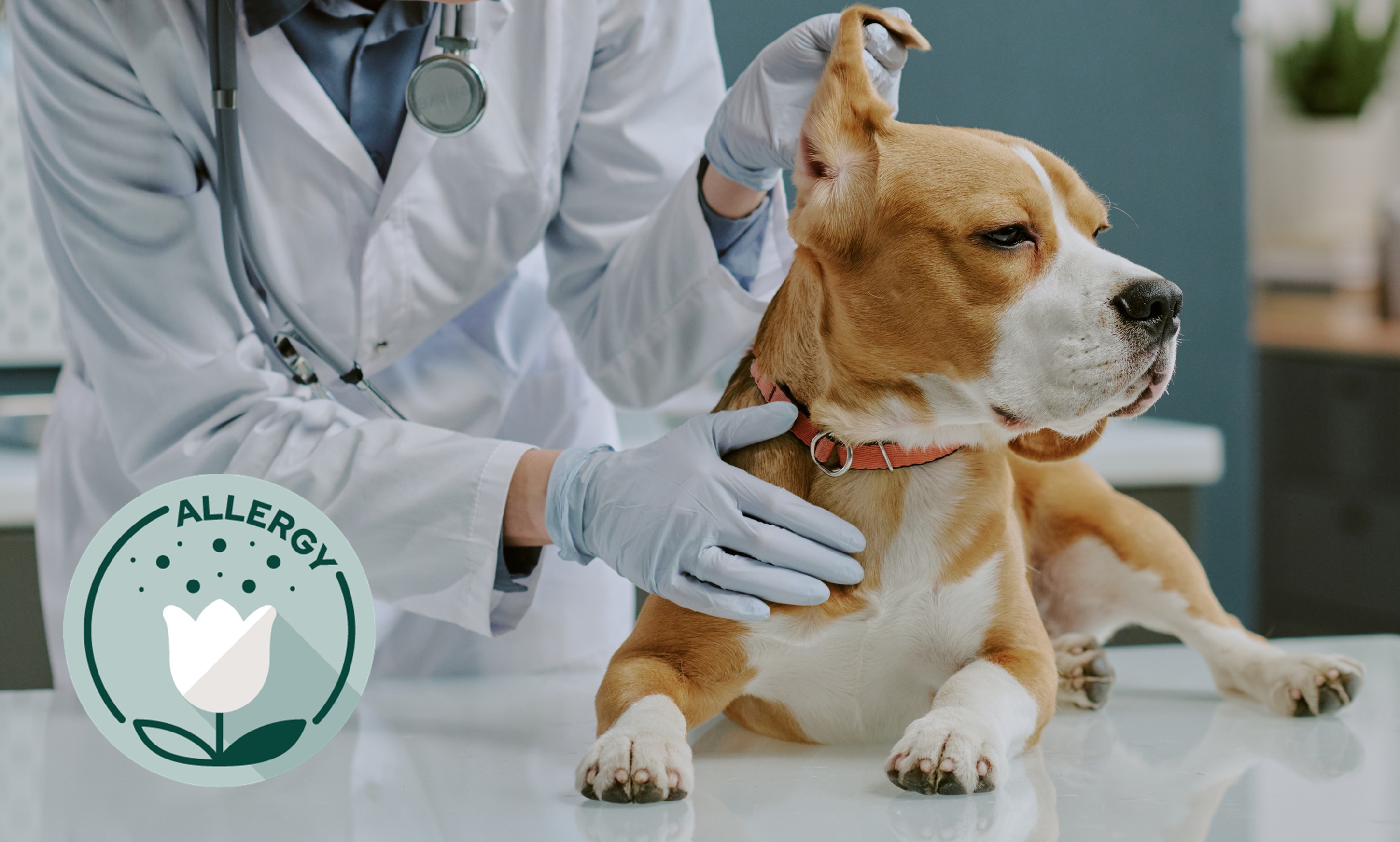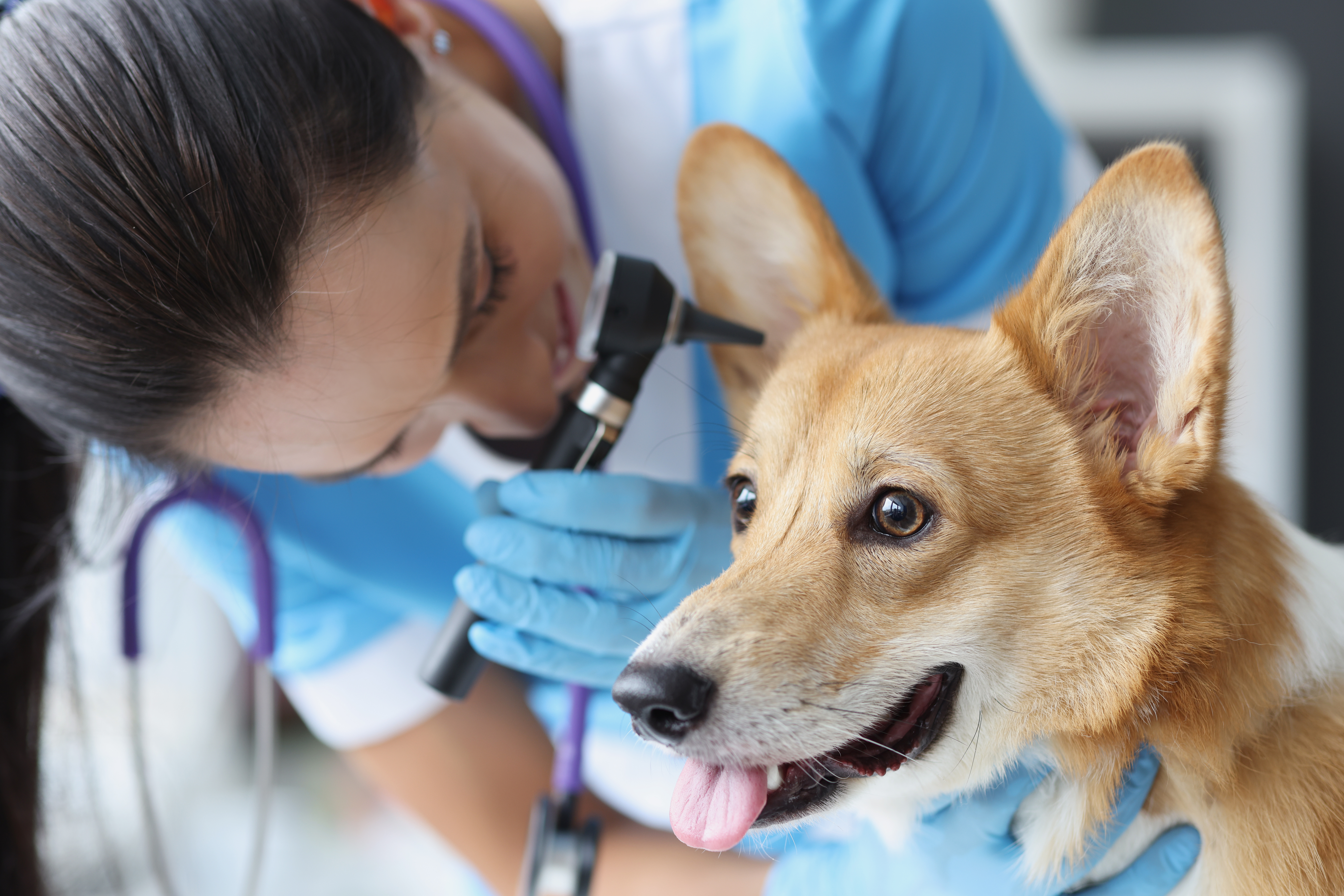
Allergy
Why does the treatment of canine otitis externa (OE) need revolutionizing?
Antimicrobial resistance (AMR) is a growing concern in both animal and human health.
![]() Published on April 29, 2025
Published on April 29, 2025
Powered by

Veterinarians and "One Health"
This means improving the way we use antimicrobials by:
-
Prescribing antimicrobials only when required
-
Treating promptly, with the correct dose and for the correct duration
-
Using topical antimicrobial therapy where appropriate
-
Diagnosing and treating the underlying pathology wherever possible
-
Ensuring adherence to Health Canada guidance and considering the document “Categorization of Antimicrobial Drugs Based on Importance in Human Medicine”.

Category I: Very high importance
Essential in the treatment of serious bacterial diseases, because there is limited or no availability of alternative antimicrobials allowing effective treatment in the event of the emergence of resistance to these agents.
- Cephalosporins (3rd and 4th generations)
- Fluoroquinolones* (marbofloxacin*, enrofloxacin*, orbifloxacin)
- Nitroimidazoles (metronidazole)
- Polymyxins*
Category II: High importance
Treat a variety of infections including serious infections and for which alternatives are generally available.
- Aminoglycosides (except topical agents)
- Cephalosporins (1st and 2nd generations)
- Fusidic acid*
- Lincosamides
- Macrolides
- Penicillins
- Trimethoprim/sulfamethoxazole
Category III: Medium importance
Treatment of bacterial infections for which alternatives are generally available.
- Aminoglycosides* (topical agents, gentamicin*)
- Phenicols (florfenicol)*
- Sulphonamides
- Tetracyclines
- Trimethoprim
*Chart is amended from “Categorization of antimicrobial drugs based on importance in human medicine” to include antibiotics commonly used in veterinary medicine. Highlighted in red are those antibiotics commonly used in otitis externa treatments.1
Antibiotic use in canine otitis externa (OE)
Some otic products contain antibiotics that are classified as “very high importance” to human medicine. Responsible antimicrobial use includes choosing the right antimicrobial for the disease-causing bacteria, and where possible use one that is less important to human medicine.
OE is traditionally treated using antibacterial, antifungal and corticosteroid combination products.
Less itching, more comfort
Discover the new otic solution with hydrocortisone aceponate that makes a difference!
You must be logged in to access the page.
REFERENCE
-
Categorization of Antimicrobial Drugs Based on Importance in Human Medicine. April 2009. Government of Canada. Accessed on April 23,2025. https://www.canada.ca/en/health-canada/services/drugs-health-products/veterinary-drugs/antimicrobial-resistance/categorization-antimicrobial-drugs-based-importance-human-medicine.html


